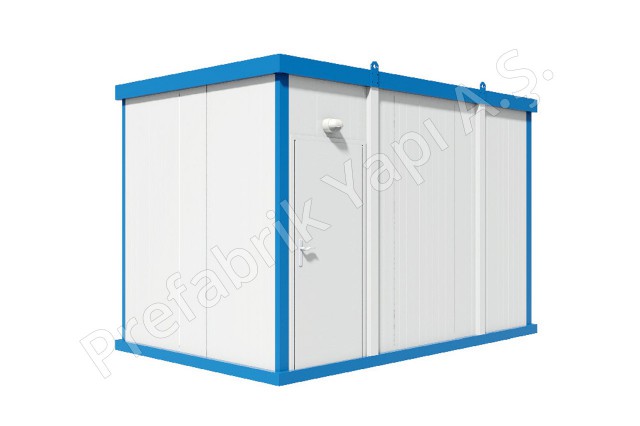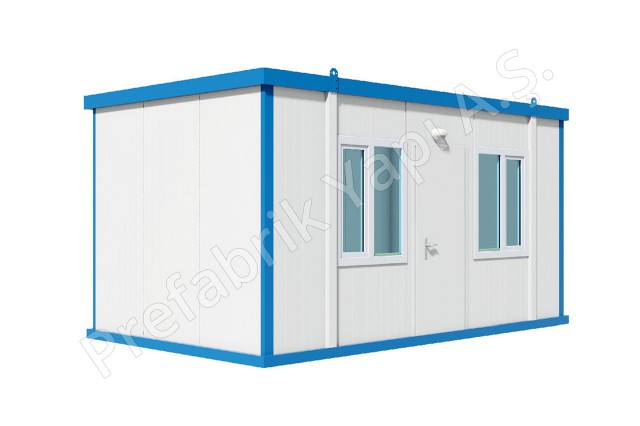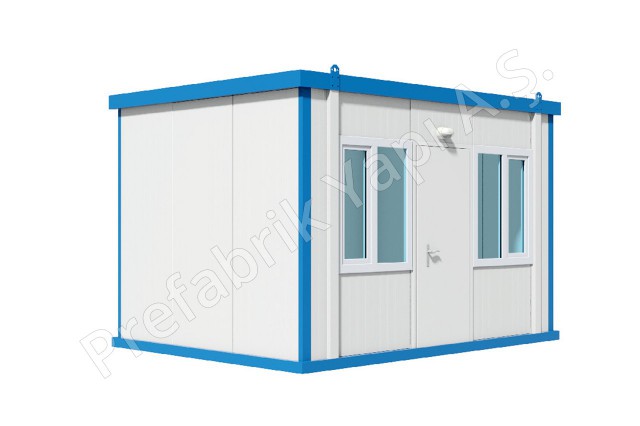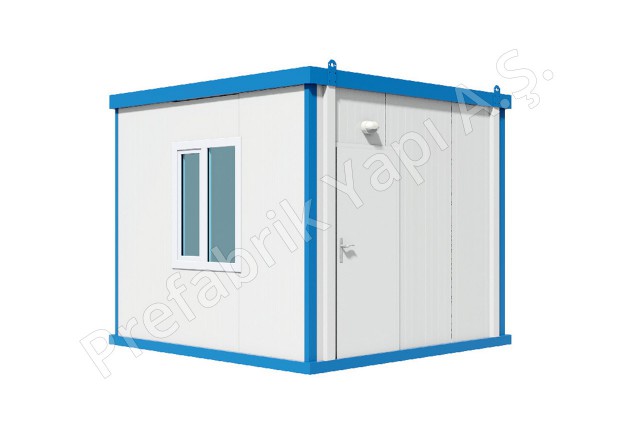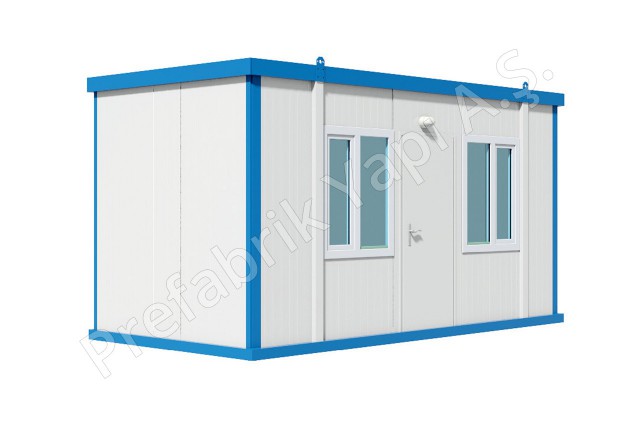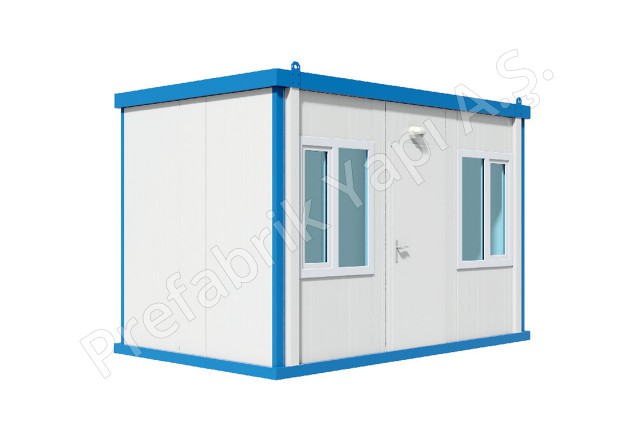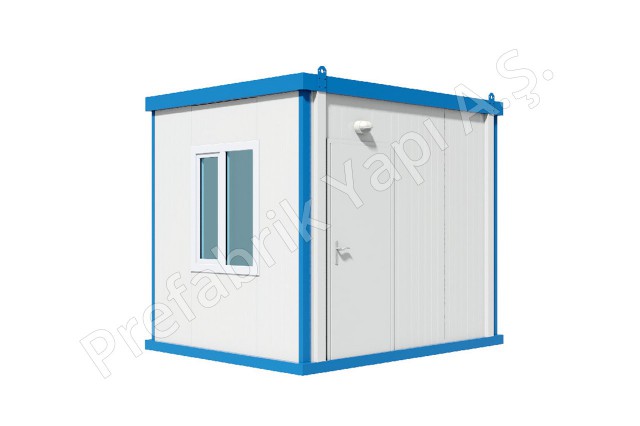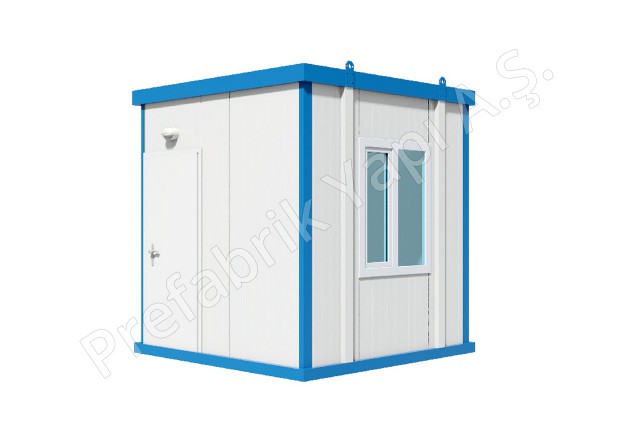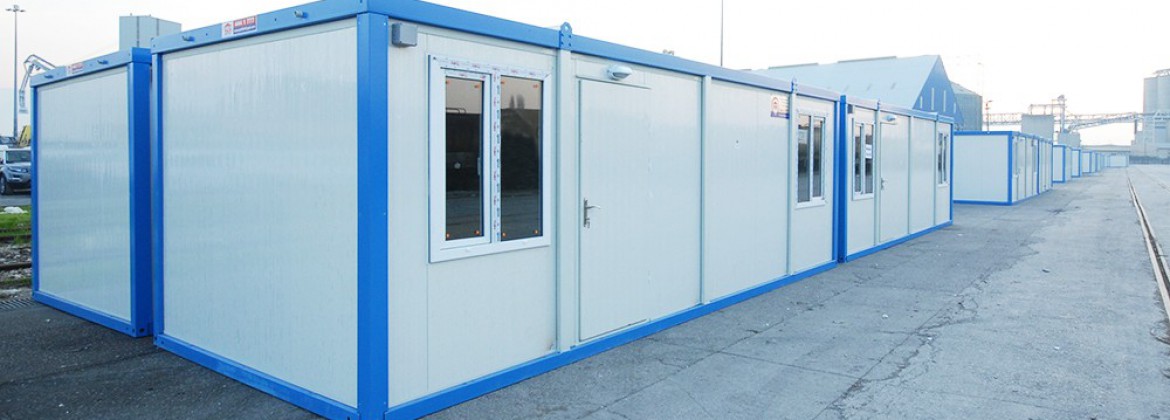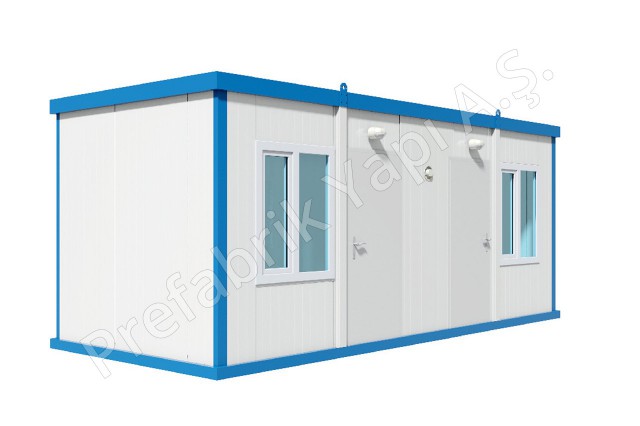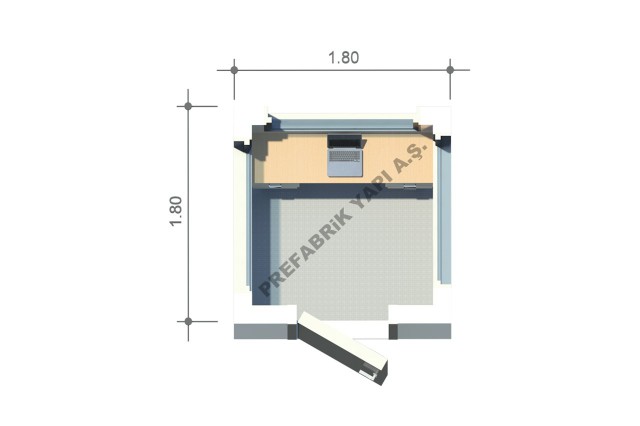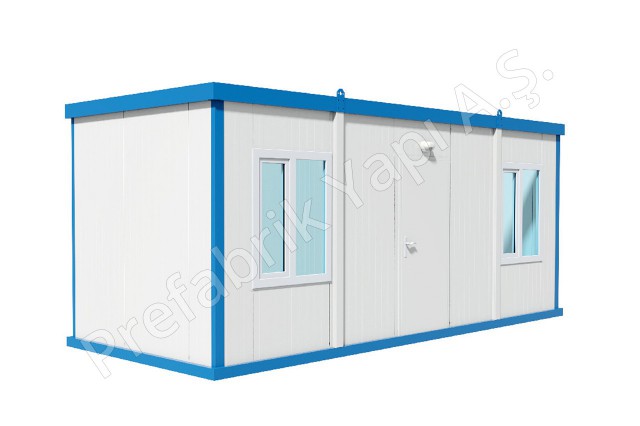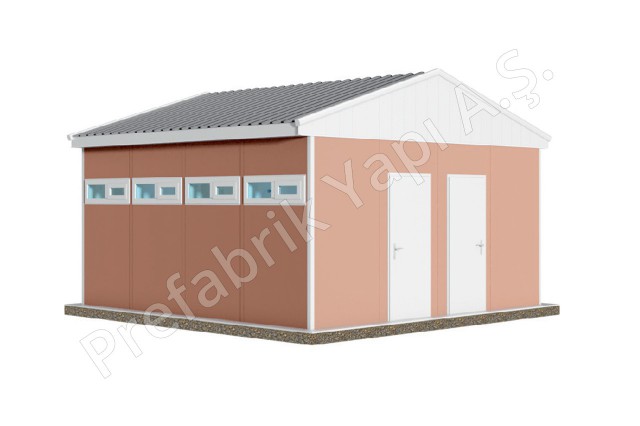Small Units
Product Category: Small Units
Prefabrik Yapı A.Ş. products all mobilization solutions for construction industry. With Lifecae brand, small units with special dimentions can be product.
Efficient, flexible, and cost-effective small modular units are revolutionizing the way we approach space. From compact offices to emergency housing, these versatile structures deliver quick solutions without compromising on quality or design.
What is Small Modular Units?
Small modular units are prefabricated structures designed for easy transportation and installation. Built off-site and delivered as a complete unit or in parts, these compact solutions are gaining popularity across sectors due to their adaptability. With smart interior planning and high-quality materials, they offer functionality without taking up unnecessary space.
These units are often referred to as modular small containers, compact container units, or mini container cabins. Their modular nature allows them to be used individually or combined for larger structures. Whether used temporarily or permanently, they serve as a reliable and scalable space solution for various needs.
Features Of Small Modular Units
One of the standout features of small modular units is their flexibility. These units can be tailored to fit different functions, including offices, security booths, accommodation, and storage. Depending on the application, they can include insulation, electrical wiring, ventilation, and even plumbing systems.
Structurally, they are often designed using durable steel frames and insulated panels, which makes them robust enough to handle diverse climates. Products like small container units and small modular containers are especially valued for their high transportability and quick setup. Thanks to their prefabricated nature, they can also be dismantled and relocated with minimal effort.
Installation Methods For Small Modular Units
The installation of small modular units is a streamlined process compared to traditional construction. Since the units are manufactured off-site, much of the work is done before they arrive at their destination. Once delivered, they can be assembled within a few hours or days depending on the complexity and size of the design.
Typically, the ground is prepared with a simple foundation such as a concrete slab or steel base. After that, modular small containers or small shipping containers are positioned and fixed into place. For multi-unit installations, stacking or side-by-side placement is used. This approach reduces environmental impact and site disruption during setup.
Advantages Of Using Small Units
Opting for small modular units offers numerous advantages, especially for time-sensitive or budget-conscious projects. First and foremost, they drastically reduce construction time since they arrive nearly complete. This ensures faster occupancy and lower labor costs.
Moreover, these units are scalable and can adapt to changing needs. Whether you require additional space in the future or need to relocate, compact container units provide an efficient solution. They are also more environmentally friendly, as the production process results in less waste compared to traditional building methods.
Common Usage Areas Of Small Modular Units
Small modular units serve a wide range of purposes across different industries. Their adaptability and quick deployment make them ideal for both temporary and permanent use. They are particularly valuable in locations where traditional construction is not feasible due to space, time, or budget constraints.
In recent years, these structures have become essential in sectors such as healthcare, education, commerce, and emergency relief. Their portable design allows them to be set up in remote or urban areas alike, fulfilling urgent needs without complex logistics or infrastructure.
Commercial Applications
Many businesses turn to small container units for their affordability and practicality. They are commonly used as mobile offices, kiosks, ticket booths, or temporary workstations at construction sites. The ability to customize these spaces allows companies to align the units with branding or functional needs, ensuring both comfort and productivity.
Residential and Emergency Use
Beyond commercial use, mini container cabins are a smart choice for temporary housing, guest rooms, or emergency shelters. Governments and aid organizations favor these units during disaster relief efforts due to their rapid setup and durability. Similarly, homeowners appreciate their versatility in expanding living space or creating backyard studios.
Small Units For Sale
For those looking to purchase small modular containers, there are a variety of models and customization options available. Units can range from basic shells to fully equipped modules with bathrooms, kitchens, and climate control systems. Sellers often offer packages for both individual and bulk purchases, depending on the buyer’s needs.
When browsing small shipping containers or modular small buildings for sale, consider their purpose and required features. Many manufacturers provide modular designs that can evolve with your needs, ensuring long-term value and usability. Purchasing directly from a trusted supplier also guarantees compliance with safety and quality standards.
Things to Consider When Buying Small Modular Units
Before investing in small modular units, it’s crucial to assess your space requirements, local regulations, and intended use. Consider the dimensions, layout, and insulation properties to ensure the unit meets environmental and functional expectations. For example, compact container units are excellent for smaller plots but might need add-ons for specific uses.
You should also evaluate transportation logistics and site preparation needs. Some terrains might require reinforced foundations or special delivery methods. In addition, ask about warranties, after-sales support, and the availability of spare parts to ensure smooth ownership.
How to Order a Custom Small Unit?
Ordering a custom small modular unit begins with identifying your specific needs, such as intended use, size, and internal features. Whether you're looking for a simple workspace or a fully equipped mini-living unit, reputable suppliers typically offer a design consultation phase. During this phase, clients can choose layout options, materials, finishes, and functional add-ons.
Once specifications are finalized, the production process begins in a controlled facility, ensuring quality and consistency. After fabrication, the unit is delivered to your site and installed. This custom approach allows buyers to create unique mini container cabins or modular small containers that align with operational needs or lifestyle preferences without overextending budgets or timelines.
Maintenance and Longevity of Small Units
Regular maintenance significantly enhances the longevity of small modular units. These structures are designed for durability, but like all buildings, they benefit from routine checks on insulation, electrical systems, and structural integrity. Simple tasks such as cleaning exterior surfaces and ensuring proper drainage around the base go a long way in preventing wear.
Materials used in small container units are often resistant to rust, mold, and weather damage. However, it’s important to periodically inspect windows, doors, and seals to avoid potential leaks or energy loss. With basic upkeep, many units can remain fully functional for decades, making them a smart long-term investment for various sectors.
Insulation and Energy Efficiency in Small Modular Units
Energy efficiency is a critical component of modern small modular units. Proper insulation not only reduces heating and cooling costs but also enhances comfort in extreme weather. Manufacturers typically offer insulated wall panels, roofing, and flooring systems tailored to regional climate conditions.
Energy-saving features such as double-glazed windows, solar-ready infrastructure, and smart ventilation systems are also available in most small modular containers. These additions help create eco-conscious solutions that meet green building standards. Especially for long-term or residential use, investing in high-performance insulation boosts both environmental sustainability and daily living quality.
Best Insulation Options for Small Modular Structures
The best insulation options for modular small buildings include polyurethane panels, rock wool, and expanded polystyrene (EPS). Each material has its benefits PU foam provides high thermal resistance, rock wool excels in fire safety, and EPS is lightweight and cost-effective. Choosing the right insulation depends on climate, use case, and energy goals.
Small Units For Sale
The growing demand for flexible, portable structures has led to an increase in availability of small units for sale across a range of designs and sizes. From simple shells to fully customized solutions, buyers can find units that match their operational or personal needs. These units are often pre-designed with essential features but can also be tailored for specific uses such as offices, living spaces, or site cabins.
Purchasing options for small modular units typically include single units or bulk orders, depending on project scale. Many manufacturers offer delivery, setup, and optional add-ons like air conditioning, security systems, and energy-efficient windows. This makes small modular containers an ideal choice for buyers seeking rapid deployment with minimal complications.
Things to Consider When Buying Small Modular Units
When buying small modular units, several key factors should guide your decision. First, determine the purpose and environment in which the unit will be used. Will it serve as a temporary office, a permanent residential unit, or a mobile facility? This will help in choosing between small shipping containers, mini container cabins, or compact container units with varying specifications.

